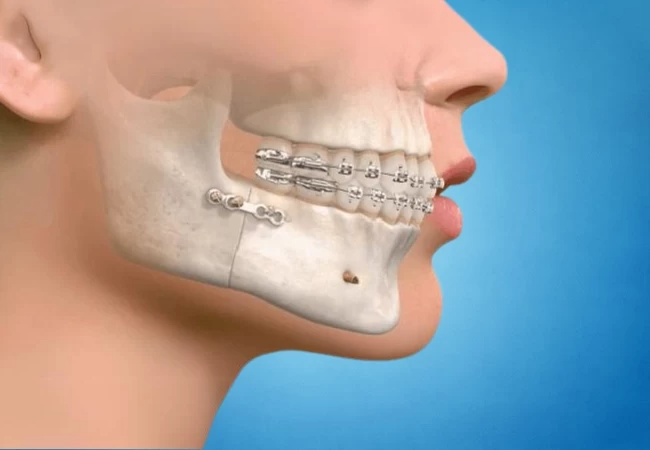Maillofacial Surgery
Maillofacial Surgery
Maxillofacial Surgery, a specialized field of dentistry and medicine that focuses on the diagnosis and treatment of diseases, injuries, and defects involving the hard and soft tissues of the oral and maxillofacial 1 (mouth, jaws, face, and neck) region.
Think of it as surgery that bridges the gap between dentistry and medicine, dealing with complex issues in the face and jaws.
Scope of Maxillofacial Surgery:
Maxillofacial surgeons are highly trained to treat a wide range of conditions, including:
- Dental Implants: Placement of implants to support artificial teeth.
- Wisdom Teeth Management: Surgical removal of impacted or problematic wisdom teeth.
- Facial Trauma: Repair of fractures of the jaws, cheekbones, nose, and other facial bones due to accidents or injuries. This includes soft tissue injuries as well.
- Corrective Jaw Surgery (Orthognathic Surgery): Surgical correction of misaligned jaws to improve bite, speech, and facial appearance. This is often done in conjunction with orthodontics.
- Temporomandibular Joint (TMJ) Disorders: Diagnosis and surgical or non-surgical management of pain and dysfunction of the TMJ and surrounding muscles.
- Oral and Facial Tumors and Cysts: Surgical removal and management of benign and malignant growths in the mouth, jaws, and face.
- Cleft Lip and Palate Repair: Surgical correction of congenital deformities of the lip and palate in infants and children.
- Facial Infections: Management of severe infections of the mouth, jaws, face, and neck.
- Cosmetic Facial Surgery (Facial Plastic Surgery): Procedures to improve facial aesthetics, such as rhinoplasty (nose reshaping), blepharoplasty (eyelid surgery), facelifts, and chin augmentation. Note: The extent to which maxillofacial surgeons perform purely cosmetic procedures can vary based on their training and local regulations.
- Sleep Apnea Surgery: Surgical options to treat obstructive sleep apnea by addressing airway obstructions in the jaws and throat.
- Salivary Gland Disorders: Surgical treatment of tumors, stones, or infections of the salivary glands.
- Reconstructive Surgery: Repair of defects resulting from trauma, surgery for tumors, or congenital abnormalities. This can involve bone grafting and soft tissue reconstruction.
- Pre-prosthetic Surgery: Procedures to prepare the mouth for dentures, such as bone grafting or removal of excess tissue.
- Management of Oral Diseases: Surgical treatment of certain oral diseases and conditions.

Training of a Maxillofacial Surgeon:
The training pathway for a maxillofacial surgeon is rigorous and varies slightly depending on the country. Generally, it involves:
- Dental Degree (DDS/DMD): All maxillofacial surgeons have a background in dentistry.
- Medical Degree (MD/MBBS – in many countries, especially for those practicing the full scope): This provides a broader medical foundation.
- Hospital-Based Surgical Residency: A lengthy and intensive residency program (typically 4-6 years or longer) focusing on surgical techniques, anesthesia, and patient management in a hospital setting. This residency covers areas like general surgery, plastic surgery, otolaryngology (ENT), and anesthesia, in addition to the specific maxillofacial surgery training.
- Fellowships (Optional): Some surgeons pursue further specialized training in areas like head and neck oncology, facial trauma, craniofacial surgery, or cosmetic surgery.
Why Choose a Maxillofacial Surgeon?
You might be referred to a maxillofacial surgeon for various reasons, including:
- Complex Dental Issues: Impacted teeth, complex extractions, or the need for dental implants, especially in challenging situations.
- Facial Injuries: Fractures or soft tissue damage to the face and jaws.
- Jaw Alignment Problems: If you have a significant underbite, overbite, or crossbite that requires surgical correction.
- Tumors or Cysts: Growths in the mouth, jaws, or face that need surgical removal and often biopsy.
- Cleft Lip or Palate: Specialized surgical care for these congenital conditions.
- TMJ Disorders: When non-surgical treatments are ineffective and surgery is considered.
- Cosmetic Facial Concerns: If you are considering surgical procedures to improve your facial appearance.
- Sleep Apnea: When surgical options to improve the airway are being explored.
The Importance of Maxillofacial Surgery:
Maxillofacial surgery plays a crucial role in:
- Restoring Function: Improving chewing, speaking, and breathing.
- Alleviating Pain: Managing conditions like TMJ disorders and facial pain.
- Correcting Deformities: Addressing congenital issues like cleft lip and palate or acquired deformities from trauma or surgery.
- Treating Diseases: Managing infections, tumors, and cysts in the facial region.
- Improving Aesthetics: Enhancing facial appearance and boosting self-confidence.
- Improving Quality of Life: Addressing conditions that can significantly impact a person’s daily life.
Book your Appointment Today!
Your smile is just one click away.
